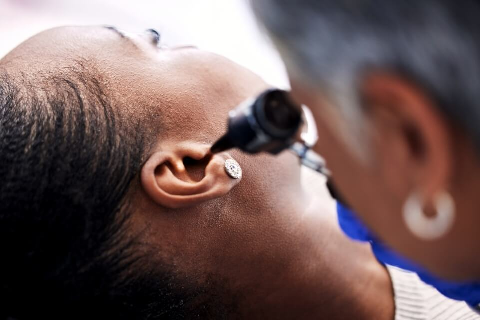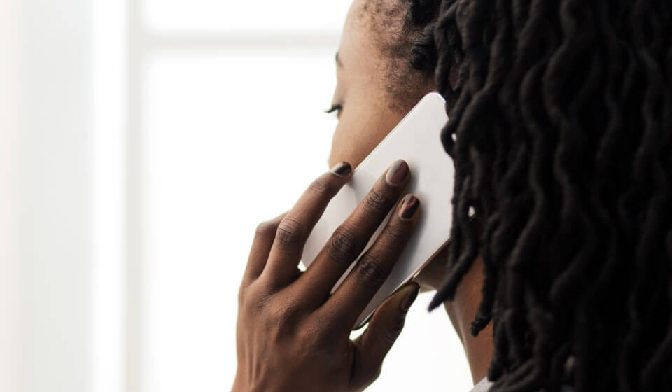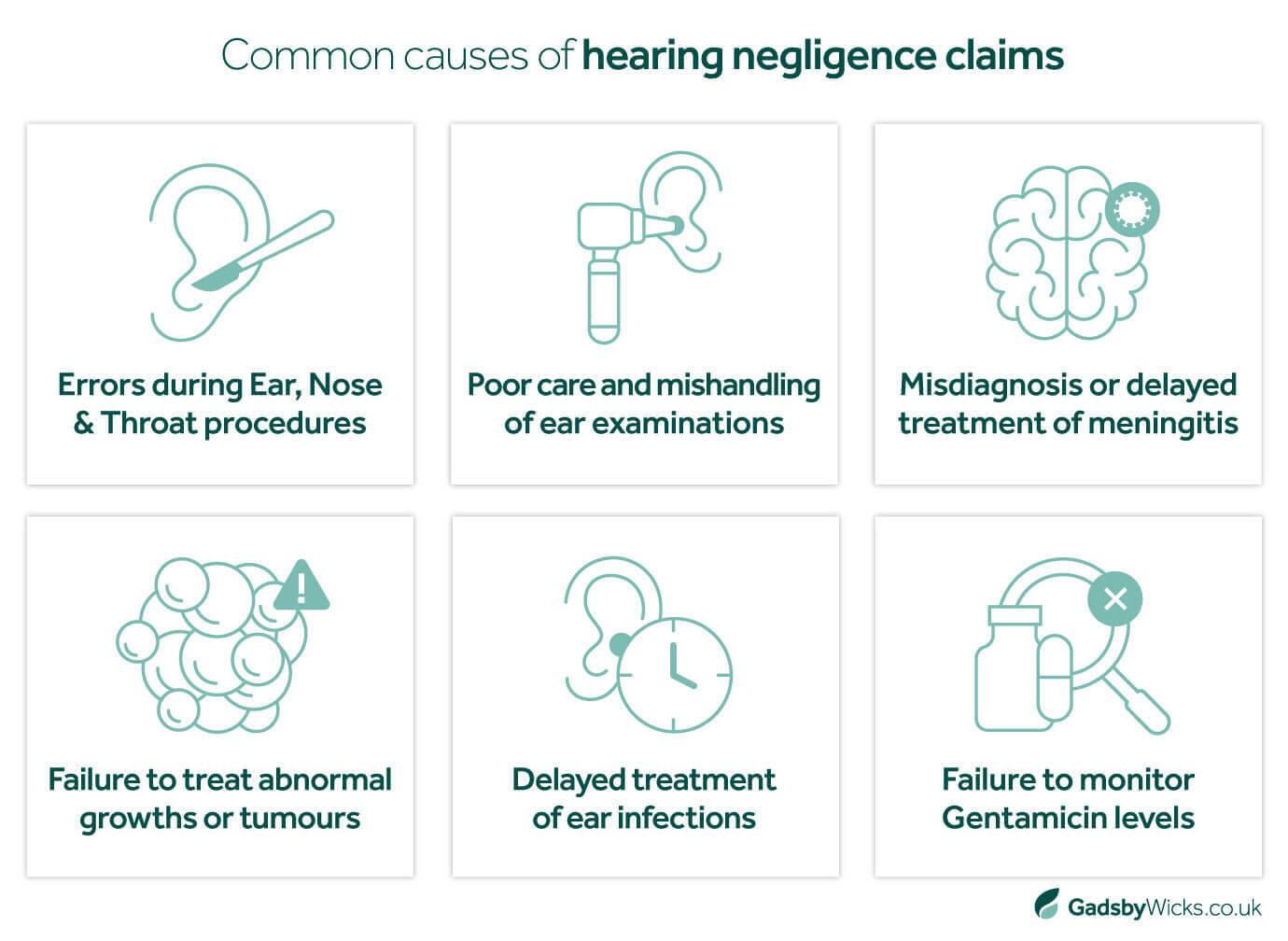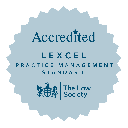- Home >
- Hearing Loss Claims
A loss of hearing, however it is caused, can profoundly impact someone’s personal and professional life. When it is the result of poor medical treatment, it can make a difficult time even harder to come to terms with.
Whether your hearing damage was due to a surgical error, misdiagnosis or another mistake, we can secure the answers, compensation and justice you deserve. With over 30 years of specialist experience in your corner, trust our hearing loss claim solicitors to help you move on with total peace of mind.

Do you have a hearing loss claim?
Hearing is one of our core senses, something we can easily take for granted. If a medical mistake robs your ability to hear, it can completely alter your ability to work, socialise and communicate, and greatly limit your independence.
Did your negligent treatment lead to partial or permanent hearing loss? You may be entitled to compensation. Our dedicated medical solicitors investigate all evidence and guide you through the process, securing the settlement you need to adjust to your new circumstances.

The specialist hearing loss claims solicitors for Essex & East Anglia
At Gadsby Wicks, our expertise, empathy and single-minded focus on medical negligence allow us to achieve the hearing loss compensation you are owed.
Since 1993, our solicitors have recovered millions for people affected by hearing damage, navigating the complexities with clear, bespoke legal advice. With 96% of our claims settled outside of court and all services provided on a strict ‘no win, no fee’ basis, our expert approach gives you absolute reassurance and long-term financial support.
What does our hearing loss claim process look like?

A free initial consultation
Call us, request a callback or complete our online form and we’ll assess if you have a valid medical negligence claim.

Funding your claim
Discover the ways we can fund your claim without you paying a penny at any stage of the process.

Investigating evidence
We gather medical records, witness statements and more to learn what happened to you and prove your claim.

Instructing independent medical experts
We work with impartial, experienced medical experts to establish whether your injuries were due to substandard medical care.

Valuing your claim
We assess your health and financial losses to accurately estimate how much compensation your claim is worth.

Presenting your case
We contact the Defendants and the Courts on your behalf to set out your allegations and receive a response.

Negotiating a settlement
We work to achieve a fair settlement for you outside the courtroom – this is how 96% of our cases end.

Preparing for Trial
If we must proceed to Trial, we fully prepare you for what to expect so you receive the right result in court.
FAQs about hearing loss compensation claims
What are hearing loss and deafness?
Loss of hearing occurs when sound signals cannot reach the brain, whether as a result of nerve damage or sound being unable to pass through one or both ears.
Hearing damage may cause someone to lose their ability to hear high tones, low tones or, in rare and serious cases, all sound frequencies. The varying degrees of hearing loss are classified in the UK by the British Society of Audiology as follows:
- Mild hearing loss describes a decibel (dB) hearing level between 21 - 40 dB
- Moderate hearing loss encompasses a hearing level between 41 - 70 dB
- Severe hearing loss is denoted by a hearing level of between 71 - 95 dB
- Profound hearing loss is at a level of 95 dB and above
It is estimated that more than 1.5 billion people worldwide live with some degree of hearing loss.
Are there different types of hearing loss?
Yes, there are three primary types of hearing loss: conductive hearing loss, sensorineural hearing loss, and mixed hearing loss.
Conductive hearing loss
This type of hearing loss occurs when sound is not conducted efficiently through the outer ear canal to the eardrum and the tiny bones (ossicles) of the middle ear. This can be caused by ear infections, perforated eardrums, impacted earwax and fluid in the middle ear.
Sensorineural hearing loss
Sensorineural hearing loss occurs when the inner ear (cochlea), or the nerve pathways from the inner ear to the brain, are damaged. These impairments often lead to permanent hearing loss, and are most commonly caused by exposure to loud noises, head trauma, inner ear diseases or genetic factors.
Mixed hearing loss
Mixed hearing loss is a combination of conductive and sensorineural hearing loss. This can include damage to the outer or middle ear as well as the inner ear or auditory nerve.
How can hearing loss happen?
There are numerous potential causes of both permanent and partial hearing loss, including:
- Regularly working in noisy environments without adequate ear protection
- Sudden or prolonged exposure to extremely loud noises
- Physical head injuries that impact the ears
- Infections and diseases, such as otosclerosis and Ménière's disease
- Medical negligence
Furthermore, many people naturally lose hearing as they get older.
The variety of causes can increase the complexity of proving someone’s hearing loss was a result of medical negligence. This makes it vital to work with specialist solicitors who have experience investigating claims of this nature to reach the correct outcome.
If you suffer noise-induced hearing loss or your deafness was caused by an accident at work, on the road or in a similar environment, we would advise you to speak to a personal injury claims specialist.
What are the most common causes of hearing loss due to medical negligence?
At Gadsby Wicks, we are experts at handling claims for all forms of hearing loss caused by medical negligence, including claims related to:
- Errors made during Ear, Nose & Throat (ENT) procedures
- Mistakes during surgery, such as a subpar cochlear implant procedure
- Poor care and mishandling of ear inspections, causing perforated eardrums and similar injuries
- Misdiagnosis or delayed treatment of meningitis
- Misdiagnosis or delayed treatment of cholesteatoma
- Misdiagnosis or delayed treatment of otosclerosis
- Misdiagnosis or delayed treatment of ear infections
- Failure to identify and treat abnormal growths or tumours
- Failure to monitor Gentamicin levels (an antibiotic used to fight infection in newborn babies)
If you believe you have experienced hearing loss due to one (or more) of the above scenarios, we can help you determine if you have a valid medical negligence claim and pursue the justice you deserve.
View our National and Essex Medical Negligence Statistics post for more industry insight.

How do I know if I have a hearing loss claim?
To determine whether you have a valid hearing loss claim, you must answer the following three questions:
- Did a healthcare professional breach their duty of care to you during your treatment?
- Did you suffer pain, injury, loss or damage during your treatment?
- Was the breach of duty you suffered the direct cause of your suffering?
If the answer to all three is yes, then you likely have a legitimate claim. Working with a knowledgeable medical negligence solicitor ensures each question is approached with the utmost care and attention to detail, so any sign of negligence is understood and pursued.
As part of our comprehensive medical negligence claims process, we will:
- Set you up with your dedicated solicitor to discuss your situation
- Gather all relevant evidence to reinforce your claim
- Consult with independent medical experts
- Contact the Defendant, assess their response and advise on your next steps
- Negotiate with the Defendant to reach a fair settlement
- Prepare you for your court hearing should your case proceed to trial
If our solicitors determine that you do not have a valid hearing loss claim, we will inform you of this at the earliest opportunity with an explanation of why we cannot pursue your case further.
To find out if you have a potential eye negligence claim, answer a few short questions on our dedicated “Do I have a claim?” form.
What evidence do I need to prove a hearing negligence claim?
Examples of evidence that can be valuable in proving your hearing negligence claim include:
- Medical records
- Personal statements
- Witness statements
- Independent medical reports
- Photographs
Documentation that illustrates the impact of your hearing loss on your quality of life and finances is also crucial in calculating the compensation you can reasonably pursue.
Contact our expert hearing loss claims solicitors
If you or a loved one suffered a loss of hearing due to substandard care, speak to someone about your options. Our team is here to listen and advise you on your next steps.

Lexcel accredited medical negligence claims solicitors
We are proud to be a Lexcel-accredited practice. The accreditation is a mark of quality and comes directly from the Law Society.
A recent assessment described us as a “Centre of Excellence” and we continue to operate to the highest standards across all main areas of our field. These include client care, case management, financial management, structure and strategy, people management, risk management, information management and file management.








